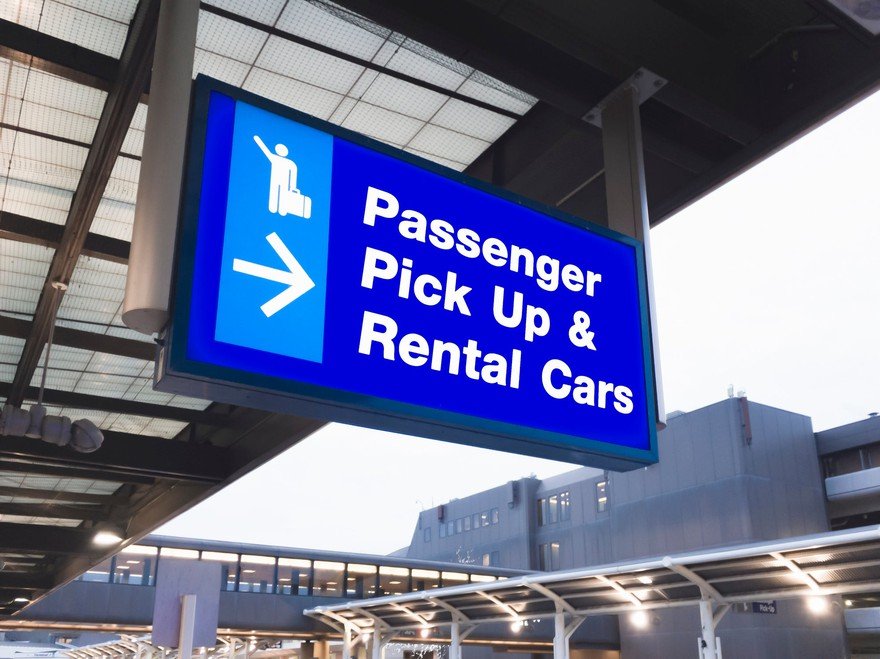With more than half of the U.S. population fully vaccinated against COVID-19, demand for vacation travel is accelerating. Despite the delta variant's spread, daily passenger volume at U.S. airports occasionally topped 2 million this past summer for the first time since the pandemic began in early 2020. All that flying has translated into rising demand for rental cars -- and, in many cases, rental car shortages.

The return of air travel is great news for rental car companies, but should you invest in rental car stocks? Avis Budget Group (NASDAQ:CAR) is the only car rental company trading on a major stock exchange, and Hertz Global Holdings (OTC:HTZZ) recently worked its way out of bankruptcy. Let's take a closer look at both of these rental car companies.
1. Avis Budget Group
Avis operates the Avis and Budget car rental brands, with more than 10,000 rental locations globally. The company also owns the Zipcar car-sharing network, which boasts more than 1 million members.
Due to the pandemic, Avis's 2020 revenue tumbled by 41% year over year to $5.4 billion, and the company last year posted a net loss of almost $700 million. Avis' revenue for the first quarter of 2021 was down by 22% year over year but returned to year-over-year growth in the second quarter as it started to move past the effects of COVID-19 lockdowns.
Avis is a more nimble company coming out of the pandemic. In 2020, the rental car company lowered its costs by $2.5 billion. It now has more than $886 million of liquid assets on its balance sheet, it's turning a profit again, and it's paying off debt.
Avis's performance is likely to improve as demand for travel continues to rise. Even so, the company may be negatively affected by the global semiconductor shortage, which is affecting car manufacturers and creating uncertainty about rental car supply.
Nevertheless, Avis has turned into a meme stock, more than doubling in value in early November after the company's solid third quarter 2021 earnings update and a short squeeze. The stock price has moderated, but retail investors are optimistic about the company's prospects as travel continues to slowly rebound.
Related investing topics
2. Hertz Global Holdings
Hertz (along with its subsidiaries Thrifty Car Rental and Dollar Rent A Car) fared even worse than Avis during the pandemic. The company's year-over-year revenue plunged by 46% in 2020and declined by 33% year over year in the first quarter of 2021. In 2020, Hertz paid $608 million in interest on its debt and generated a net loss of $1.7 billion.
When Hertz filed for bankruptcy protection in May 2020, it appeared to be a foregone conclusion that the company's shares would be rendered worthless. Hertz was saddled with billions of dollars in debt, which in bankruptcy must be repaid in full before common equity shareholders can recover any value.
But Hertz has since agreed to a bankruptcy plan, and it escaped the financial doghouse in July 2021. The reorganized Hertz will shed about $5 billion of debt and have liquid assets worth roughly $2.2 billion out of the gate. Plus, the company is back in growth mode as of the third quarter of 2021 and has started turning a healthy profit again both on an unadjusted net income and on an adjusted EBITDA basis.
Additionally, Hertz recently placed an initial order for 100,000 Teslas (NASDAQ:TSLA) and will expand its electric vehicle (EV) charging infrastructure to support the order. Hertz plans to make as many as 50,000 of the EVs available to Uber (NYSE:UBER) drivers to rent by 2023. Clearly, Hertz has plans to be part of a future of mobility that features flexible and renewable energy-based transportation.
Investors who buy the stock now are doing so because they believe the new Hertz is well-positioned to thrive. However, investors in Hertz stock should be aware there are risks associated with this rental car company -- as well as risks inherent for Avis -- as the car rental industry continues to manage the effects of the COVID-19 pandemic.












